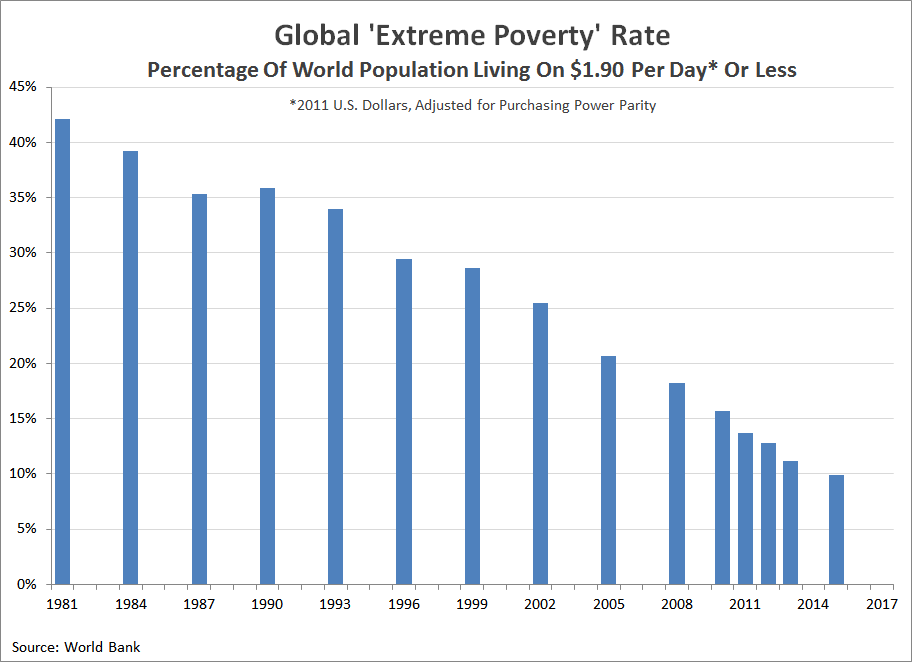World Bank Study Finds That Deregulation Reduces Extreme Poverty
Regardless of where you might live around the world, if you live on less than $2 a day, you would be considered to be living in extreme poverty.
According to the World Bank, in 2015 about 736 million people around the world, or just under 10 percent of the world’s population, had incomes that put them below this international poverty line. Believe it or not, that is extraordinarily good news because poverty rates around the world have fallen dramatically since 1981 when 42 percent of the world’s population lived on an inflation-adjusted $1.90 or less per day.
World Bank economists studying a portion of this decline in the nine years from 2005 through 2013, when the extreme poverty rate was cut nearly in half from 21 percent to 11 percent, have discovered that much of this reduction in global poverty came about because of deregulation, as governments around the world have been reducing the regulatory burdens they impose on their citizens.
Using panel data for 189 economies from 2005 to 2013, this paper shows that business-friendly regulations are correlated with the poverty headcount at the country level. This association is significant using the World Bank’s Doing Business indicators on getting credit and contract enforcement. The findings suggest that the conduit for poverty reduction is business creation, as a source of new jobs and a manifestation of thriving entrepreneurship.
Regulations can restrict the ability of individuals to find jobs or start businesses because politicians and bureaucrats often write them to benefit the interests of large, established interests, who would rather not have to compete for business in a free market.
This crony socialism benefits these special interests in two ways. First, by using the power of government to impose disproportionately large costs upon their smaller, less politically connected competition, they can keep their smaller competitors from being able to effectively challenge their interests.
Second, in the reduced competition environment that government regulation fosters, they can charge higher prices than they otherwise could, where they only need to provide the politicians and bureaucrats who write the rules a small cut of the action so they can fund their political campaigns to stay in power. Never mind the effect that has on the cost of living in the regimes where the regulations hold sway or the trust that people have in their political and economic institutions.
Historically in much of the world, the yoke of regulatory burden has contributed to the impoverishment of billions. Reducing that burden by lifting the heavy hand of government regulation has successfully diminished extreme poverty around the world in recent decades. It’s a lesson that everyone should learn.






